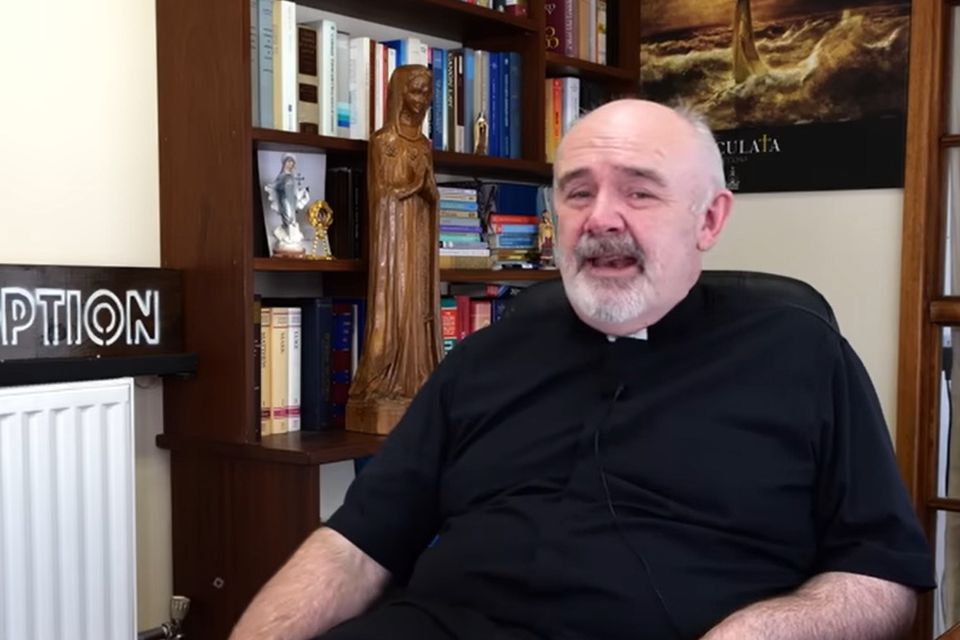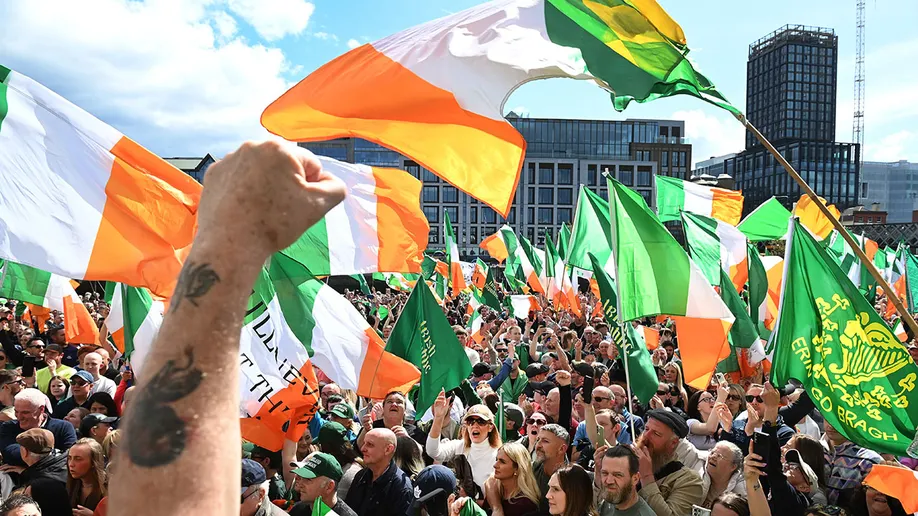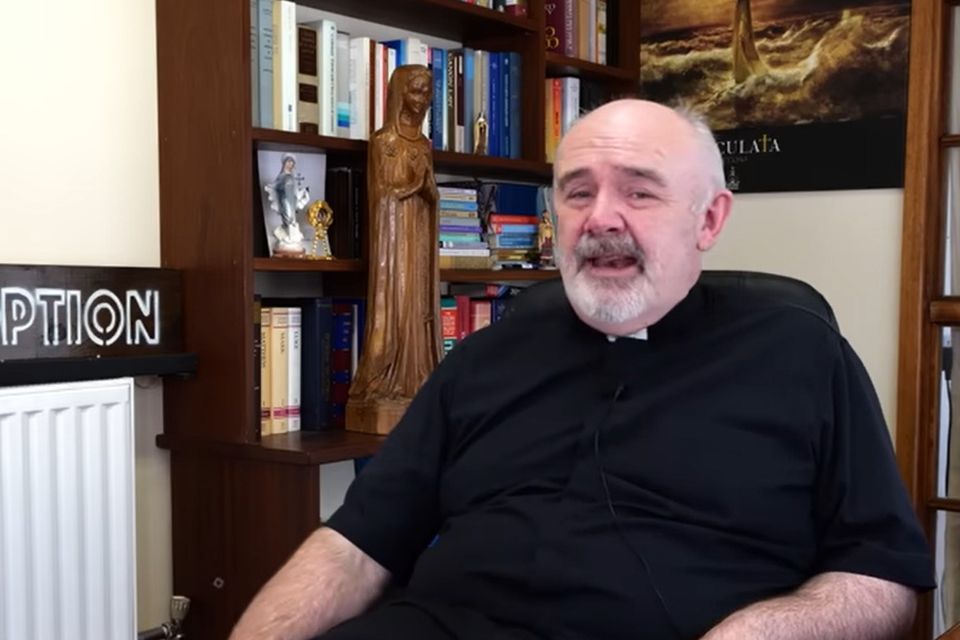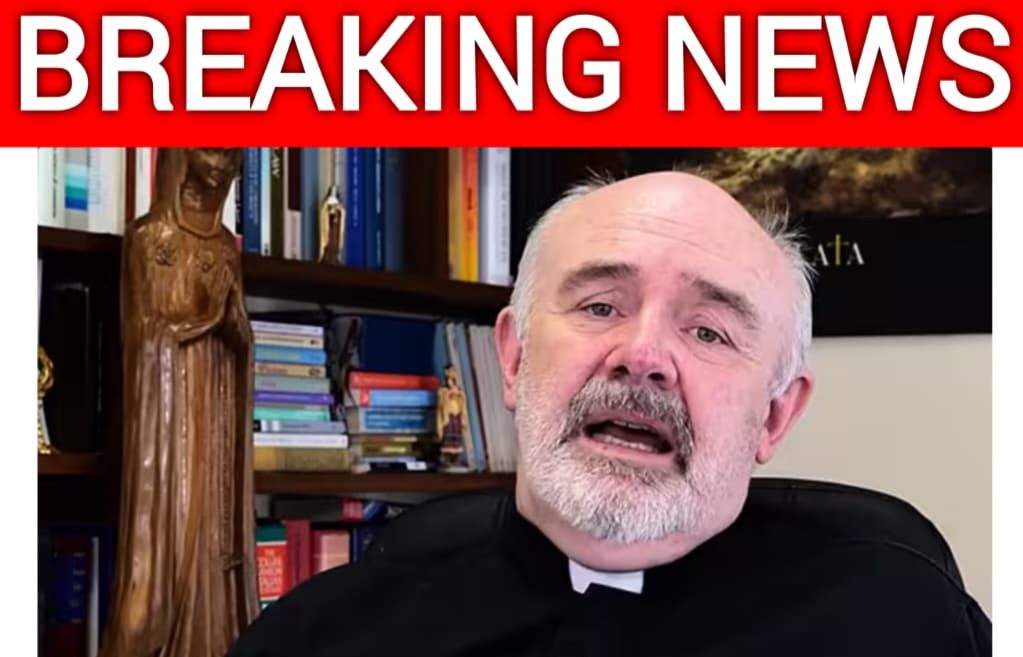Father Brendan Kilcoyne Says Ireland Is “Crammed” and Should Only Accept Christian Migrants, Stirring Debate Over Faith, Culture, and Immigration
Immigration has always been one of those topics that tugs at people’s emotions. On one hand, it’s about human lives—families searching for safety, workers chasing opportunity, refugees fleeing war. On the other hand, it’s about nations—cultures, resources, and identities that feel tested when change comes too quickly. Few issues create as much division, and in Ireland this week, one priest’s remarks set off a storm that shows just how raw the conversation has become.

Father Brendan Kilcoyne, a parish priest from Balla in County Mayo, took to his podcast The Brendan Option to talk about immigration. The title of his episode, Immigration or Invasion, was already enough to turn heads. But what really shook people was the way he framed Ireland’s current challenges. He said the country is “crammed” and that immigration is being “badly managed.” More controversially, he argued that Ireland should only be allowing Christian migrants to enter.
“If it were up to me,” he said during the broadcast, “I would only permit Christian immigration into Europe… I would only permit Christian immigration into Ireland. I think you can justify that on any number of grounds.”
It was the kind of statement that spreads quickly. Headlines ran with it. Social media lit up with reactions. Some people praised him for saying what they felt others were too afraid to say. Others condemned his remarks as discriminatory and divisive, arguing that it betrayed the values of equality, compassion, and human rights that Ireland is supposed to uphold.

What made his words sting even more for critics was that he didn’t stop at limiting immigration to Christians. He also referenced so-called “no-go areas” in British cities—zones he claimed had effectively become inaccessible to civil authorities because of immigrant communities. That phrase, “no-go areas,” isn’t new. It’s been used for years in far-right circles across Europe to describe neighborhoods with large Muslim populations. Experts have debunked the idea many times, pointing out that while some areas face social and economic challenges, the claim that police or government cannot enter them is false. The phrase also gained infamy for appearing in the manifesto of Anders Breivik, the Norwegian extremist responsible for a 2011 mass killing.
So, when Fr Kilcoyne used that same phrase, alarm bells rang. Critics accused him of echoing extremist rhetoric and lending legitimacy to conspiracy theories. For supporters, though, his words rang true to their experiences and frustrations. They see local communities overwhelmed, services stretched thin, and cultural shifts happening too fast. To them, Fr Kilcoyne was simply voicing what ordinary people whisper among themselves.
But stepping back from the noise, what’s really at play here? Why do his words matter so much?

Part of the answer is that immigration in Ireland has become one of the most pressing and divisive issues in recent years. The country has seen waves of asylum seekers, refugees, and economic migrants arrive, many of them from outside Europe. While some people embrace this change as part of a modern, open Ireland, others feel the nation is unprepared and overwhelmed. Protests against asylum housing have erupted in towns and cities. Some have been peaceful, others marred by anger and misinformation.
Against that backdrop, the voice of a priest carries weight. Ireland, despite being more secular today than in decades past, still sees the Catholic Church as a moral authority for many. When a parish priest goes on record to say only Christians should be welcomed, it isn’t just another opinion. It’s a spiritual leader framing the issue through a lens of faith and cultural preservation.

The problem, of course, is that such a stance collides with principles of equality and human rights. Ireland is part of the European Union and bound by international agreements that prohibit discrimination based on religion. Suggesting that only Christians should be allowed entry directly contradicts those principles. For many, it also clashes with the Christian faith itself, which calls for compassion and love for the stranger. The tension between cultural identity and universal compassion sits at the heart of this debate.
It’s also worth remembering that Ireland itself has a long history of migration—but in reverse. For generations, Irish men and women left their homeland in search of work and safety. They went to Britain, America, Australia, and beyond. Many of them were Catholic in majority-Protestant societies, and they often faced discrimination and suspicion. Signs reading “No Irish Need Apply” were not uncommon in the past. That history is why some critics of Fr Kilcoyne’s words find them so bitter. They see a man whose own countrymen once relied on being welcomed abroad now suggesting that only those who share his religion deserve the same kindness.
At the same time, ignoring the frustration he tapped into would also be a mistake. Communities genuinely feel pressure. Housing shortages, rising rents, and stretched public services have fueled resentment. When people feel their government is “badly managing” immigration, as Fr Kilcoyne put it, it creates space for anger and fear to grow. And when leaders or institutions fail to address those fears openly, people look for voices that echo their concerns, even if those voices come wrapped in controversy.

So where does this leave Ireland? On one hand, it faces the challenge of living up to its values—fairness, compassion, equality under the law. On the other, it must address the very real strain immigration places on housing, healthcare, and local communities. Both realities are true at the same time. To deny either is to lose sight of the full picture.
Fr Kilcoyne’s remarks will not be the last of their kind. They are part of a growing trend across Europe, where leaders, priests, and politicians are framing immigration not just as an economic or logistical issue but as a cultural and religious one. For Ireland, a nation deeply shaped by Catholicism but increasingly diverse and secular, this debate cuts especially deep.
What happens next depends on how the country chooses to respond. Will it lean into fear and exclusion, drawing hard lines around who belongs and who doesn’t? Or will it find a way to manage immigration more effectively while still honoring the dignity of all who arrive? That’s the real test.
As for Fr Kilcoyne, his words will likely continue to echo, stirring both support and backlash. Some will see him as a brave truth-teller. Others will see him as a voice of division. Perhaps he is both, depending on where you stand. But what can’t be denied is that his comments shine a spotlight on a conversation Ireland can no longer avoid.
In the end, the debate isn’t just about who gets to enter Ireland. It’s about what kind of Ireland the country wants to be. A place that guards its culture by shutting the door, or a place that trusts its culture is strong enough to welcome others in? That question is bigger than one priest, bigger than one podcast, and it’s one the entire nation will have to answer together.



